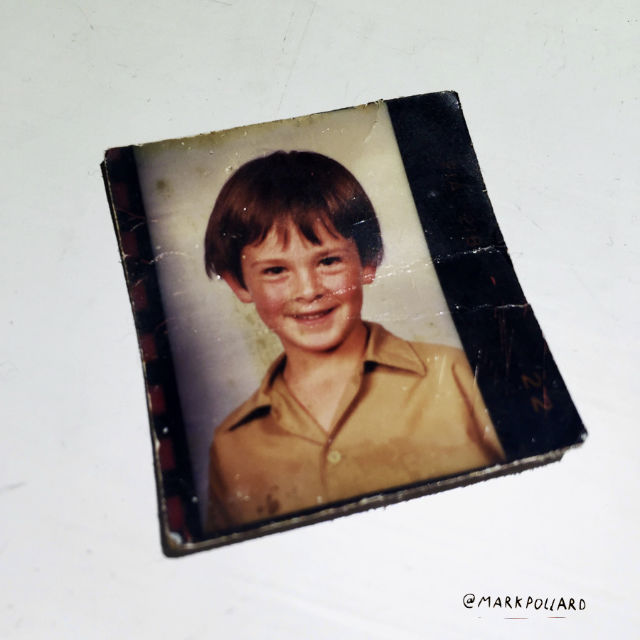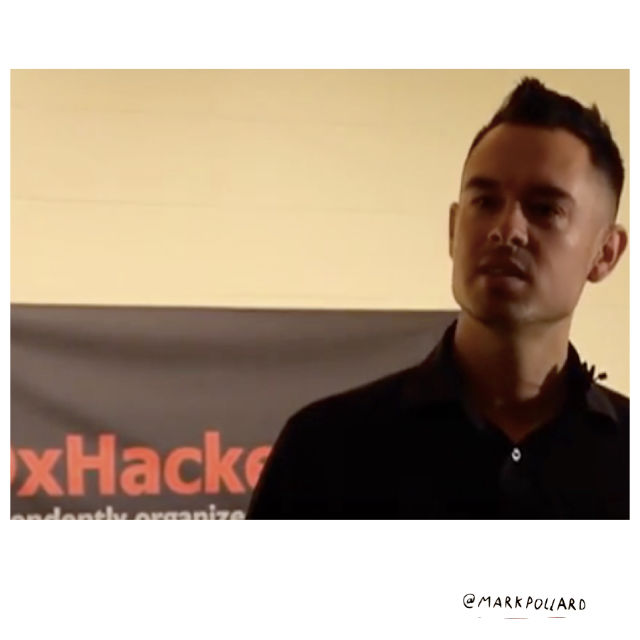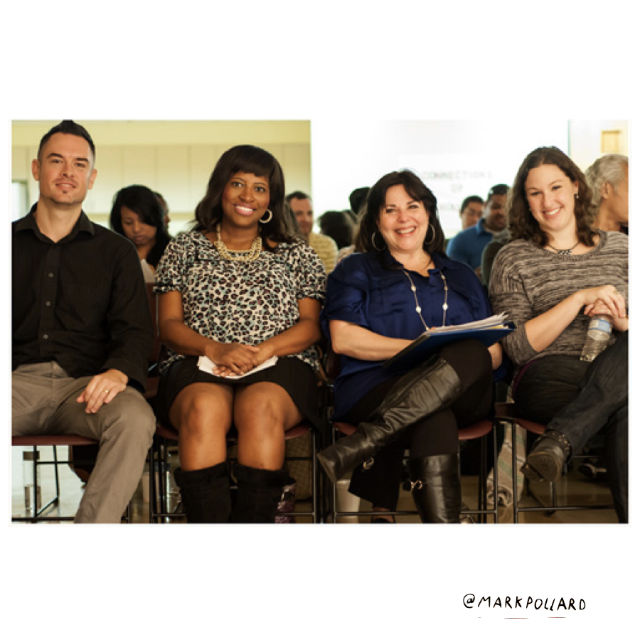
So, I did this TEDx talk in 2012
In September 2012, I did a TEDx talk in Hackensack, New Jersey. At the time, I hoped it would cure me of twenty-five years of sadness and a family shredded into pieces. I thought if I could cure these things then I’d solve myself. A new me could emerge. My talk did not succeed at this. And perhaps that was its lesson to me.
Writers and public speakers do what they do to fulfill personal needs. The needs are a cocktail of status, connection, creativity, release, and hope. But why talk about private family problems in public? To change the world? Because my story is more important than someone else’s? To seek revenge? Revenge against whom? To get attention? To show I was special? Why would anyone want attention for this story? Surely, there’s a cost in telling this story. Or did I tell it because I thought I was privileged enough to not pay the cost and wanted to dare someone to make me pay it? Or is this story an attempt at self-destruction?
The truth is I needed to put my anger somewhere. In general, I have a quiet, sensitive, and introverted nature. Young me was taught how to read and write early, then I spent a lot of hours doing tests, and adults told me my scores were high. I skipped a grade at one point, which was great for the class bully. I’d save pocket money and buy little gifts for my family. We had family friends and spent special occasions with cousins but I think we weren’t an easy family to hang out with. It was always complicated. I have tapes from a Fisher-Price cassette recorder of me trying to calm my parents’ arguments. I’d record things under the table around the age of four. Early podcast training. And then my family fell apart. I was six or seven. Maybe it fell apart when I was born. Maybe it was never together. I don’t know. After the family fell apart, things felt haywire. I drank an oil tanker full of adult emotions and my quiet side developed a shadow side of anger, low self-worth, and suspicion. I hoped a TEDx talk could solve this.
As my children age, I experience many moments that return me to a mostly useless nostalgia. When I talk with my kids, I realize how much I want to know them in ways few people wanted to know me. When I walk with them, I realize how much time I spent alone in empty houses or shuffling between parents’ houses and school and back again. When I hold them - or, increasingly chase them to hold them - I realize how little touch I had growing up. When they share something gentle about their internal lives, I realize how much yelling was the main language in one place in which I lived, and how silence was the main language in the other place. When I look forward to them coming home so I can hear how they spent their days, I realize how I felt unwanted at home and remember the hours I spent roaming the inner city suburbs of Sydney as a teenager hoping to find someone or something that needed me.
But what’s the point of these memories?
In the moment, their point is to help me appreciate the moment they’re trying to steal from me.
I have so many stories of violence from my teenage years and my twenties. Well over one hundred. From police searches, triads and extortion, random street altercations, to strange men following my wife, veiled threats when I hosted a hip hop radio show, and self-harm. Somehow, the clear bulk of the stories are of threatened violence, not carried-out violence. My mum wasn’t so lucky.
Six years on, I don’t know if the world needed my TEDx talk. I still hope that masculinity can evolve into a less violent and predatory thing. I still hope shame isn’t society’s main weapon to achieve this. I still hope. And I still struggle with it all. Writing is my sanity.
You can watch the TEDx talk here (the sound and visuals aren’t great).
I gave it this long-winded title:
The world would be less strange if we stopped making strangers out of men
Processing these stories exhausted me and I guess I gave up on giving the talk a decent name. Here it is…

The secrets in which men live
How well do you really know the men in your life? Over the next few minutes, as their faces reach for you – fathers, grandfathers, brothers, sons, boyfriends, husbands, ex-husbands – ask yourself, how well do I really know the men in my life?
Have you ever caught one of your life’s men crying yet snatched clarity from his tears? Have you ever seen rage grab one of your life’s men only to see it abandon him answer-less and flaccid somewhere in the distance? Has a dark silence ever captivated one of your life’s men when you needed his words, he needed his words, but the silence said everything and it was all the wrong thing?
I believe the world would be less strange if we stopped making strangers out of men. We know most men through their interests and their deeds – their heroics and their villainies – and so we brush shoulders with them as cardboard cutouts. But the secrets men live in hurt people – the men included.
So, I ask you, how well do you really know the men in your life? And if you can help them know themselves better by getting to know them better yourself, will you? Can you wade beyond their interests and their deeds to the rest of them? Will you?
Today I want to share with you secrets in which I grew up. These secrets aren’t abnormal in the happening, just in the telling. I’m ready to shed this second skin if only to encourage more men to tell their stories and so you can point to one of your life’s men and say, “Look, you’re not alone. Now, let me in.”
The empty house, the book, and the disappearance
In the 1980s, I always looked forward to early morning television. I’d get up at 5am and delicately select what to watch from five channels, two of which weren’t even yet awake themselves. Inevitably, I’d land on a show like “Lost in Space” that was really good just because it was on. When the ads appeared, I’d click through the channels to see if any others had sprung to life. Sometimes I’d hang out with the ABC’s station-closed test pattern and then jump back for some wild 1960s futurism. It was a busy few hours as the rest of the house slept.
On one such morning when I was eight years old, I made my grand entrance into the living room, I looked across the backyard and I realized the rest of the house wasn’t sleeping at all. The garage was empty and I was by myself.
My dad had left a year or two earlier. I remember grabbing his leg as he calmly told me that he needed to lgo. Then, I watched him walk to the same garage, get into his car, and drive off.
Realizing the house was empty, I did what any man of the house would do – I sat down and watched television, and then flinched at any noise that indicated the garage door was opening.
Later that week, a man came to the door and gave me a book. Mum was shocked that someone could hand a child a book about rape like it was a home-delivered pizza. She was shocked when the psychologist helping her proposed she assist men with sexual problems and become a sexual surrogate. She was shocked when a man raped her at work a few years later and she was shocked when a man date-raped her with drugs a few years ago. But, for a woman who had lost her first fiancé in a car crash and then, in her own car crash, had smashed her face so badly a male judge said she was so ugly that no man would ever marry her, perhaps there was little shocking about any of this. And, when I was older, I learned the garage was empty because she was trying to get help for the first sexual assault.
Mind you, mum was a counselor, so the shocking things men did seemed simultaneously to fascinate and to numb. My sister and I grew up with her horror stories and her books that tried to make sense of the men who lived in them. “The Peter Pan Syndrome” was one of my favorite titles. It sounded like something I wanted to catch until mum pointed out that nearly every man we knew had it.
And we knew a lot of men. Mum ran a single’s club back when being divorced or being middle-aged and single were a strange taboo. Broken men – and women complaining about them – were a constant, if not physically then in eaves-dropped conversations.
Mum also occasionally had boyfriends, most of whom I found pretty odd. But when you repeatedly see the shock of another relationship ending dissolve into a desperate fear of growing old alone, you just stay in your room and hope something better than last time will happen this time.
So, I disappeared into an empty house whose walls spoke of breaking men and suffering women. I disappeared into study. I peaked with twelve-hour marathons. I disappeared into sport. When I turned to martial arts, I hit sandbags until I bled as if skin-shaven knuckles could achieve anything. I disappeared into poetry. I inked my depressions into volumes of notepads. I disappeared into the music of angry men. It led me to create the first full-colour hip hop magazine in Australia. With all my disappearances, sometimes I cut my arms to see if I was still there.
My teachers said I disappeared into cynicism and sarcasm. They said I needed to round off my rough edges. But I don’t recall anyone standing next to me with sandpaper.
Ten years after that man handed me that book, and now in my last year of school, my sister was holed up in a nearby house because a pack of kids in the neighborhood wanted to bash her. I grabbed the only memento I had from dad – a blunt Papua New Guinean jungle knife – and took it to the streets pretending I could rescue her when I just wanted to be rescued myself.
I broke down in front of my school principal the next day – the few tethers holding my family together were popping off one by one and I had no glue, just a blunt weapon.
Facing it in fits and starts
For most of my life, I haven’t known what to do with any of this. I knew how to hide from it – I became a workaholic. I worked in advertising agencies by day and made a music magazine by night. I burned out every single time I published an issue. My childhood 5am television time became my bedtime and my enemy. Slowly, I started to face it – in fits and starts that are a decade old now.
The first step happened with the epiphany that I wasn’t alone. It reached me through a book called “Manhood” by Australian author, Steve Biddulph. For nearly fifteen years, this history and these emotions coated me in guilt. I felt bizarrely responsible for a lot of it – Why couldn’t I have protected my mum and my sister better? And why wasn’t anybody there to help us? I didn’t think anybody wanted to hear it because nobody did want to hear it. This was all the secret stuff of a struggling family. And all families struggle, so all families should be able to deal with it. The book “Manhood” gave me company and taught me that I was not at all alone.
The second step I took was to gently pry into the lives of other men and listen. Rather than talk about obscure samples and influences, I used hip hop to talk to men about their lives. One MC described how he felt about his mother, a former Black Panther, dying from a heroin overdose. Another talked about how his parent’s divorce affected him. He said it was the most psychological interview he’d ever done – but he didn’t refuse a question.
In 2009, a few friends and I compiled a book of thirty man stories called “The Perfect Gift for a Man“, where men and women revealed some of the secrets that men live in. The book touched on parental fears, growing up an orphan, dealing with bullying, and self-harm. People listened.
A recent Australian campaign to get men to open up called STFU – Soften The Fck Up – led the creator Ehon to the realization that men will talk – the problem is they don’t think anybody will listen. And that’s the catch – sometimes a man will tentatively reach out but if his hand gets smacked away, he may never do it again.
I took my dad away before my wife and I had our firstborn. It was the first proper one-on-one time we’d had as adults. One of his interests is collecting postcards – he even helps run a postcard club in Sydney – so he really wanted to visit a postcard fair on our trip. And somewhere on that country road, I realized that dad would only communicate with me through his interests and deeds.
It hurt – I grew up in these secrets that nobody else wanted to deal with and I was finally ready to talk about them. But he’d grown up in World War II in England – the stiff upper lip was a survival skill. I’m coming to accept it.
To the men, this is difficult stuff. I made a decision to be in moments that seemed painful because there’s beauty in them. I mean, I have to believe there’s beauty in them otherwise what is so much of my family’s history? One of the most difficult decisions I made to be in the pain became the time I felt the closest to a man – and he couldn’t even talk.
When they put my grandfather into palliative care and knocked him out, I decided to spend as much of his last few days with him as possible. I talked to him – or at him – I wrote for him, I massaged his hands and feet. I cuddled him. Every time he exhaled I inhaled. I imagined myself breathing him into me. When the death rattle kicked in, I counted the pauses between breaths, wishing hours for him. In his final minute – my grandmother had just stepped out of the room – he raised his head, opened his eyes, looked at my aunty and at me and then sunk back into his bed. It was one of the most beautiful experiences of my life.
How to help a man help humankind
Secrets like these make strangers out of us – they hurt, and, in turn, they make it easier to hurt. However, telling you these secrets is not the hard part. The hard part is doing something about them – something I think about every time I look into the eyes of my wife, my son and my daughter. In trying, I know I’ll fail sometimes. I’m turning a very long corner.
So, as you trawl through the faces of your life’s men, ask yourself again, how well do I really know the men in my life? What if I can help them know themselves better by getting to know them better myself? What if I can break them out of the secrets they live in so the hurt will hurt less?
Let them know they’re not alone. Let them know you’ll listen. And don’t slap away an out-held hand. The world can be less strange – you need only two ears to make it happen. And, if you succeed, then this won’t be the end of men, as some people proclaim. But it will be the end of men as we know them because we don’t know them very well.
The final wish
I dressed up for you today – I don’t often wear shirts with collars and buttons. Having worn it to a few weddings, my kids call this particular shirt my “wedding shirt”. When I wear it, they ask me who’s getting married. The thing is, it’s not my “wedding shirt”. I bought it to wear to my grandfather’s funeral, where I was fortunate enough to read a personal, rambling, slightly coherent poem that I wrote to him during those last four days in hospital. I wrote it to the rhythm of a death rattle and the rain, I cobbled it together from messy pages in a notebook, and I read it through tears and splutters to a church full of eyes hoping me on.
After the funeral, a stoic gentleman from another era grabbed me. He was crying in the way only a funeral can make you – when you cry for all your life’s losses at once before you have to hide your feelings from the sunlight outside. He shook my hand, gathered himself then said, “I wish I could have spoken to my dad like that.”

With the other speakers: Donnella Tilery, Staci Block and Bonnie Schwartz.
Now
-
Please share this article with friends
-
Take this sick brand strategy Skillshare class
-
Join my email newsletter
-
Join thousands of strategists in Sweathead on Facebook


